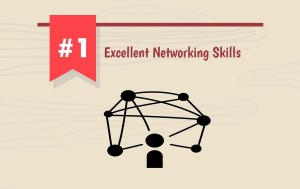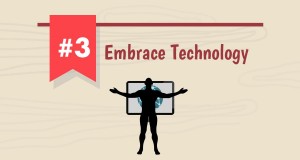The Evolution of the Recruitment Process
The evolution of the internet and how it has quickly grown has changed the way we search for jobs as well as hire people – websites such as The Recruiter are excellent for finding job roles. The entire career process has been changed forever, thanks to the help of the internet. While technology has not changed anything about what we need to do when we go about getting ourselves a job, everything in that respect has stayed the same. However, it has changed what we do to complete those steps. Gone are the days of paper CVs and waiting until the interview process to get to know the applicant or employer.
The internet has even opened up new doors for those who are in self-employment, making their business run far more efficiently. It is not shocking to see that most people tend to do their job searching online now, as it offers many more benefits than traditional job seeking.
Research
Before you even start applying for jobs you are able to research and get to know the company, to make sure that the company offers the right working environment for you. Often, people will look up the company on social media as well as their company website to find out what they need to know. Not only that, but it will also help you with having knowledge on the company before the interview so that you can be prepared to impress them.
Before the internet job seekers would have had to research companies by relying on other people’s knowledge of the company as well as spending many hours sifting through newspapers and magazines to find out the information that they require.
Interviews
The traditional face-to-face interview is now not the only way to carry out an interview, employers are now able to interview potential candidates via video – such as Skype calls or pre-recorded videos. The employer is now able to send across questions for the applicant to answer in a video, which offers time-saving benefits for both the applicant and employer. This is especially great for those who are trying to get themselves remote work to work from home.
Connecting with the Company
Before the internet to get in contact with the company you would have had no other option but to either ring them, turn up at their offices or write them a letter. These days job seekers are able to get in contact much quicker thanks to email.
You are also able to get connected with companies through their social media platforms or a blog (if they have one). Thanks to the internet, the options are endless when it comes to getting in touch with a potential employer.
Make an Impression
Back in the day, potential candidates would have had to wait until the face-to-face interview before making any sort of impression on the employer. Often, the interview would have been the first time the employer took a look at the applicant’s CV but now they are able to have a thorough look at their digital CV online as well as applicant’s online portfolios.
Digital CVs
As mentioned above, job seekers are now able to upload their CVs online. Not only does this allow for employers to read through them but it also allows recruitment agencies as well as the company to directly come to you first, approaching you to speak about a job opening that may be of interest.
Various CV websites are tracked by recruitment agencies who will often ring up the job seeker when they can see that they are actively looking for jobs. Not only can they ring you up about a job opening but agencies will often phone to discuss meeting with you to help you with your job search.
But to land a great job you need to showcase your skills off perfectly and make an impression, if you need help with writing up a CV then sites like UK Top Writers may be perfect for you.
Enhance Your Skills
For those who are looking to enter a new career or are not quite qualified enough for the job role that they are looking at applying to, it is now possible to cheaply learn those new skills that you need. Job seekers are able to now complete short online courses for very reasonable prices as well as learn certain skills through watching online tutorial videos. You no longer have to wait to enrol once a year at local colleges, instead, you can have a pick from a wider range of courses that may not be available in your local area.
Start a Campaign
Why wait for there to be a job opening, why not make the job come to you? With the help of the internet, it is now possible for people to start their own job campaigns online to help land themselves the job of their dreams. People are now able to post and share on social media platforms to help them get hired.
For more tips on how to land yourself the perfect job, search Huffington Post as they may have the ideal article full of tips for you!








